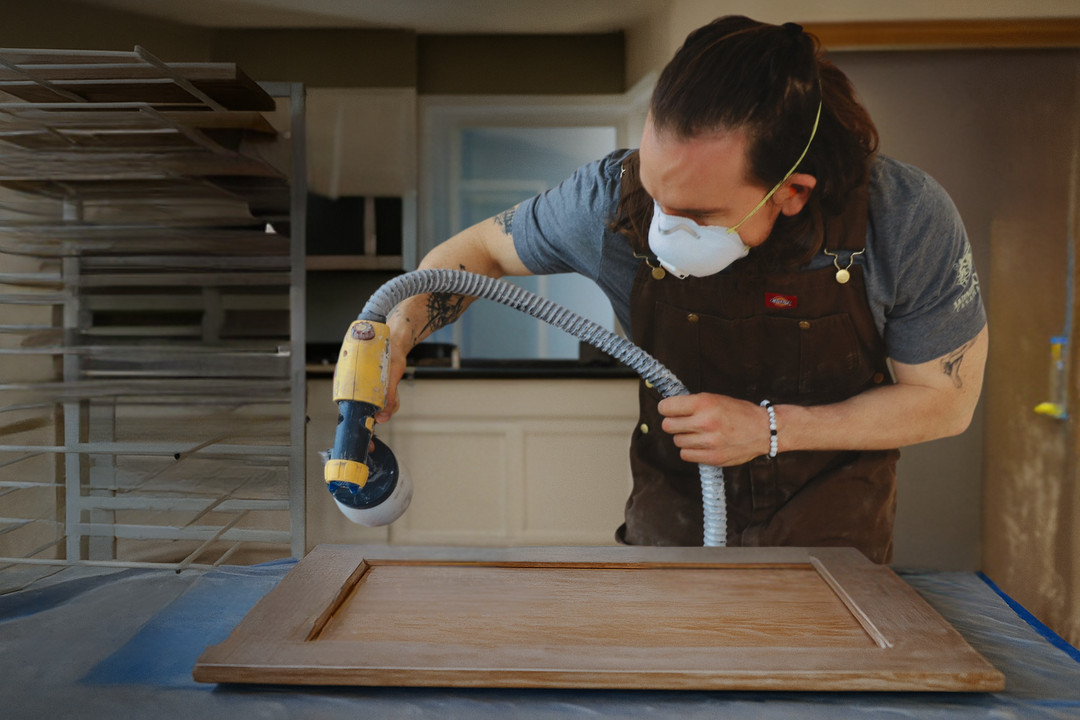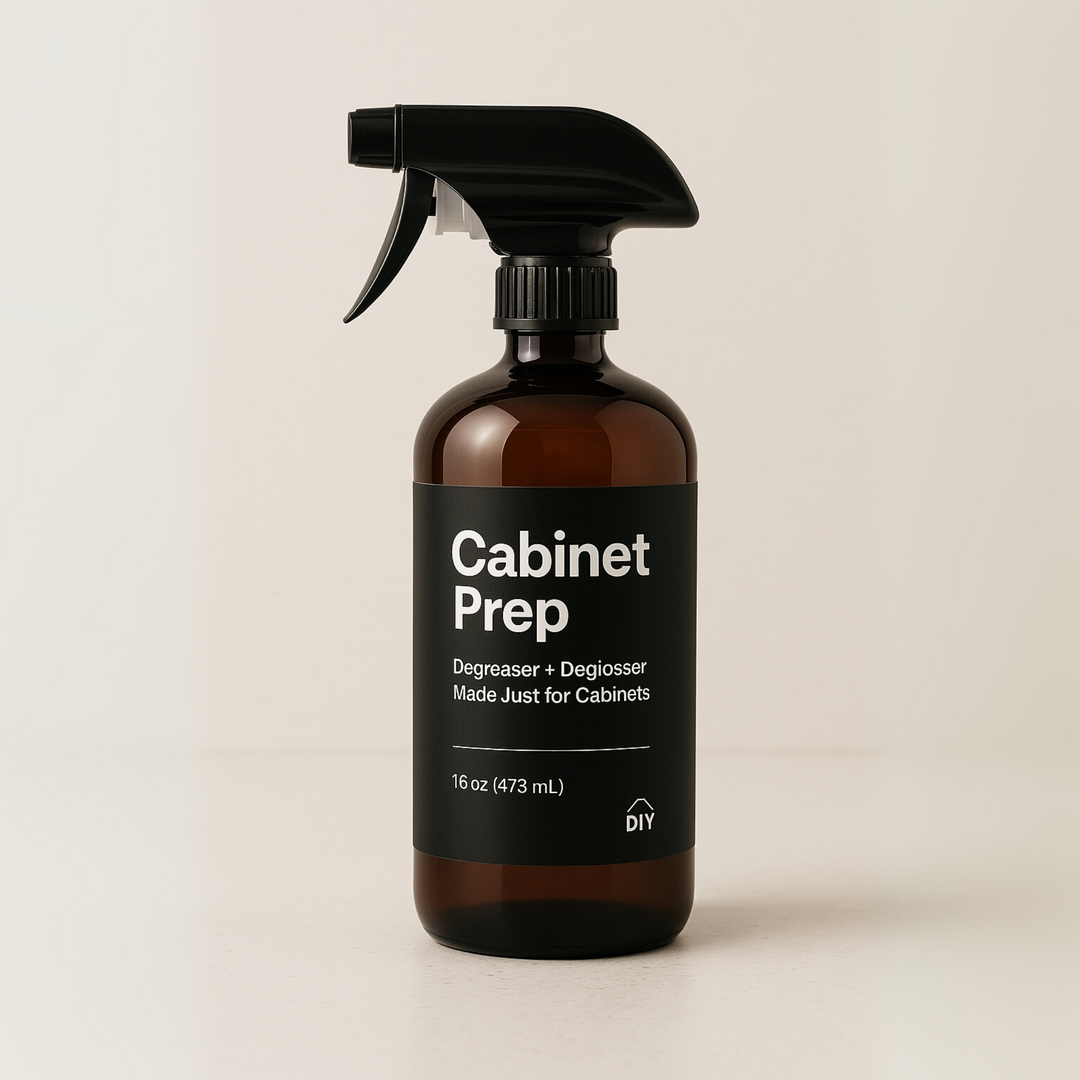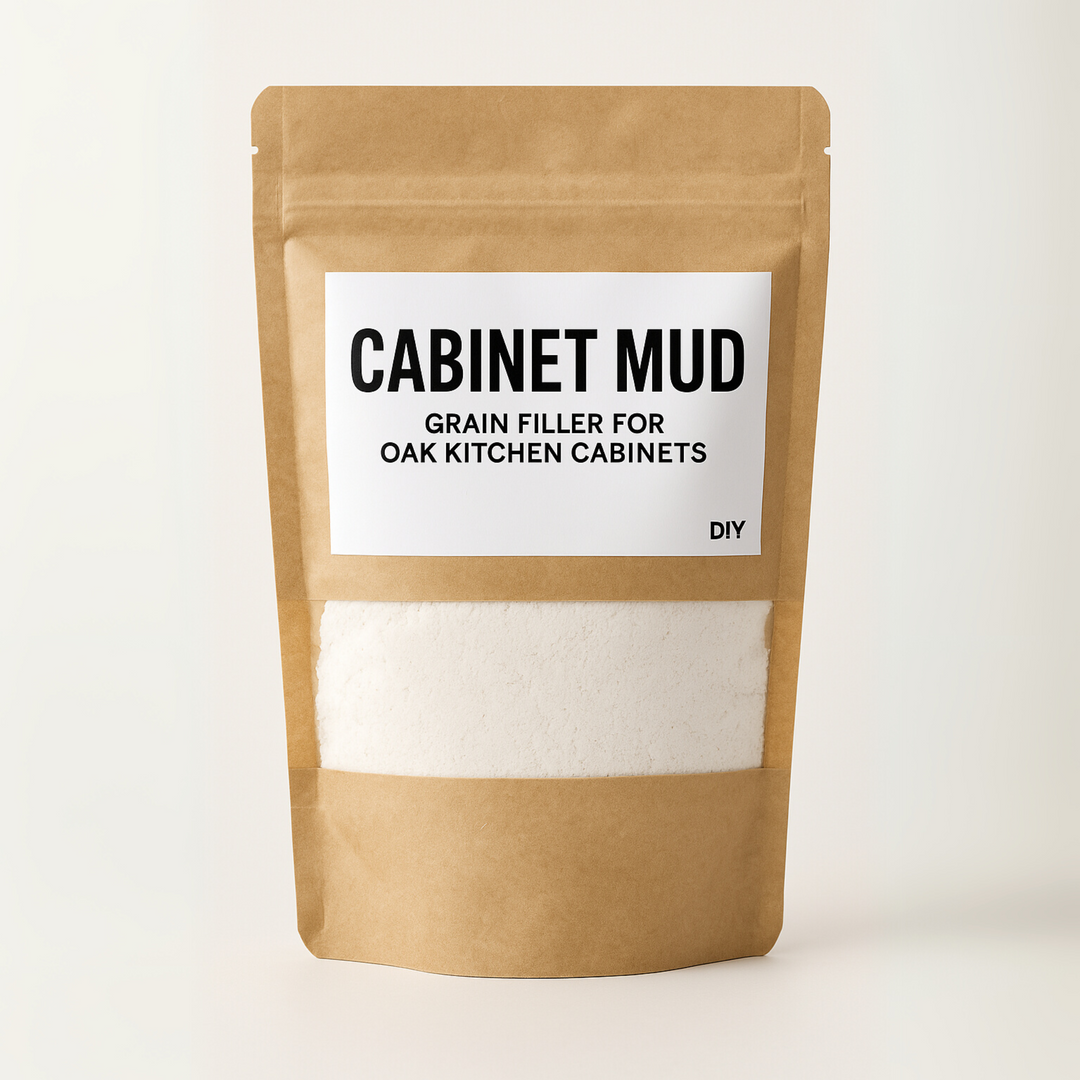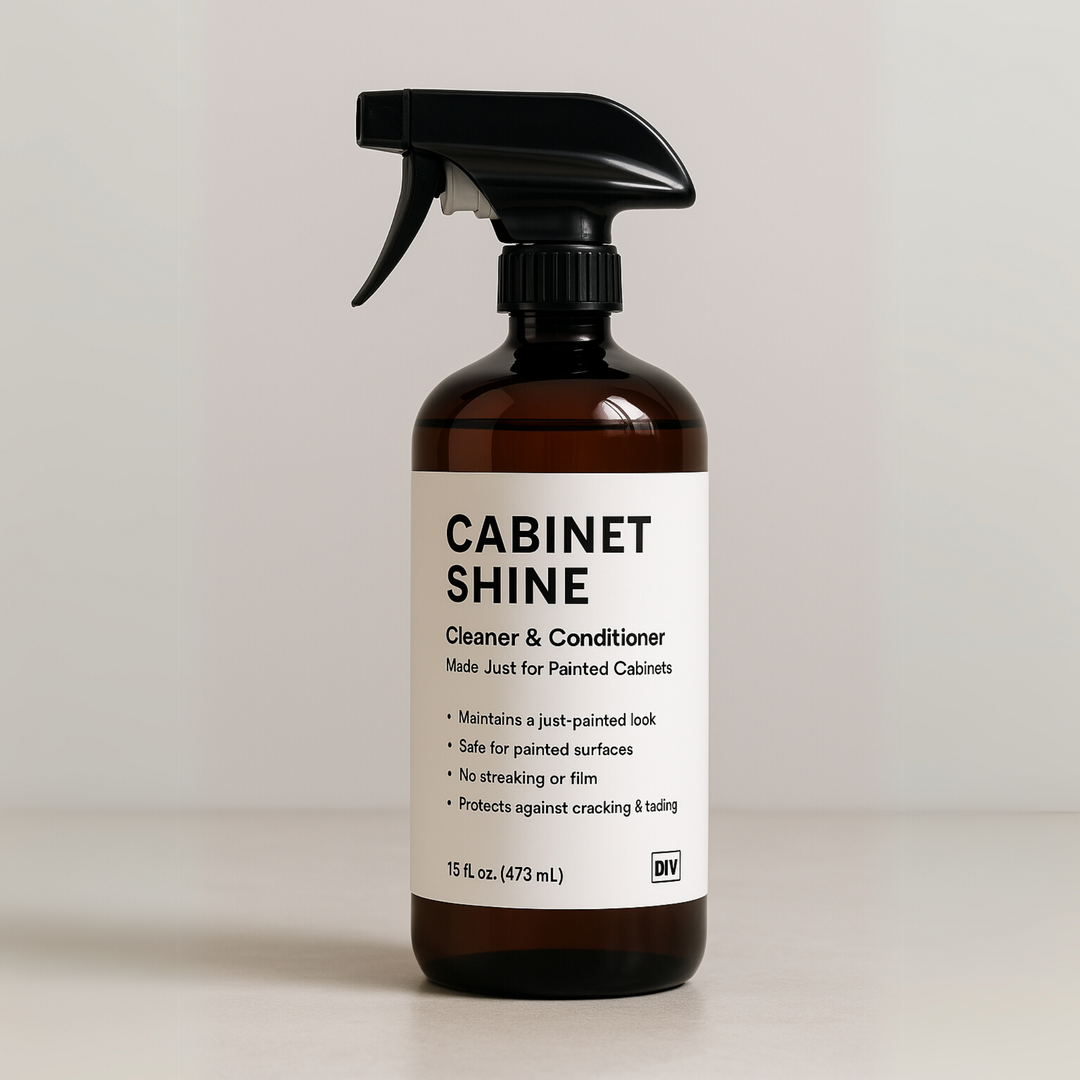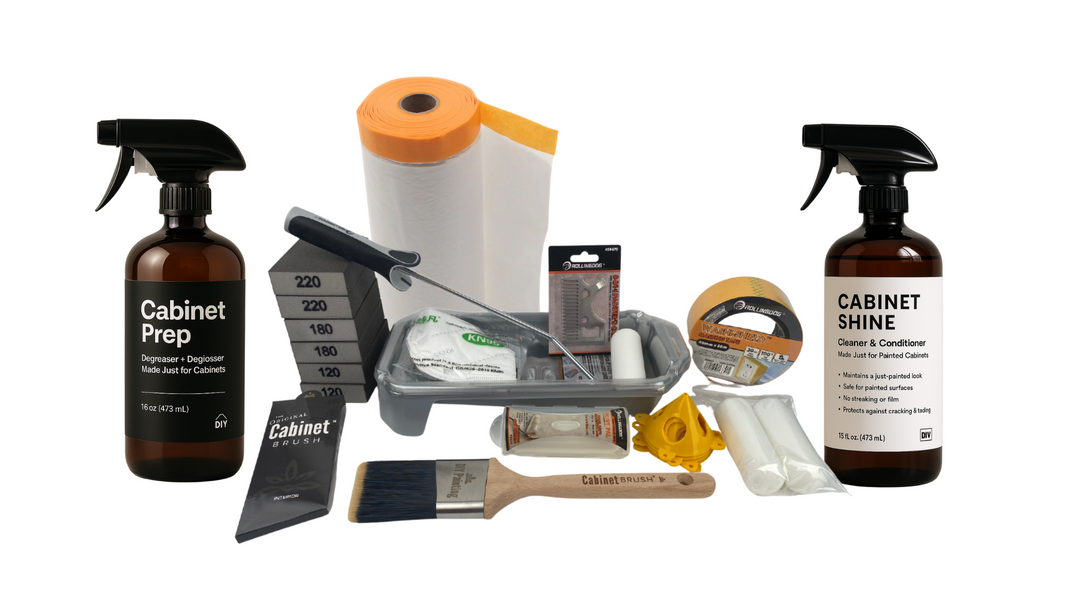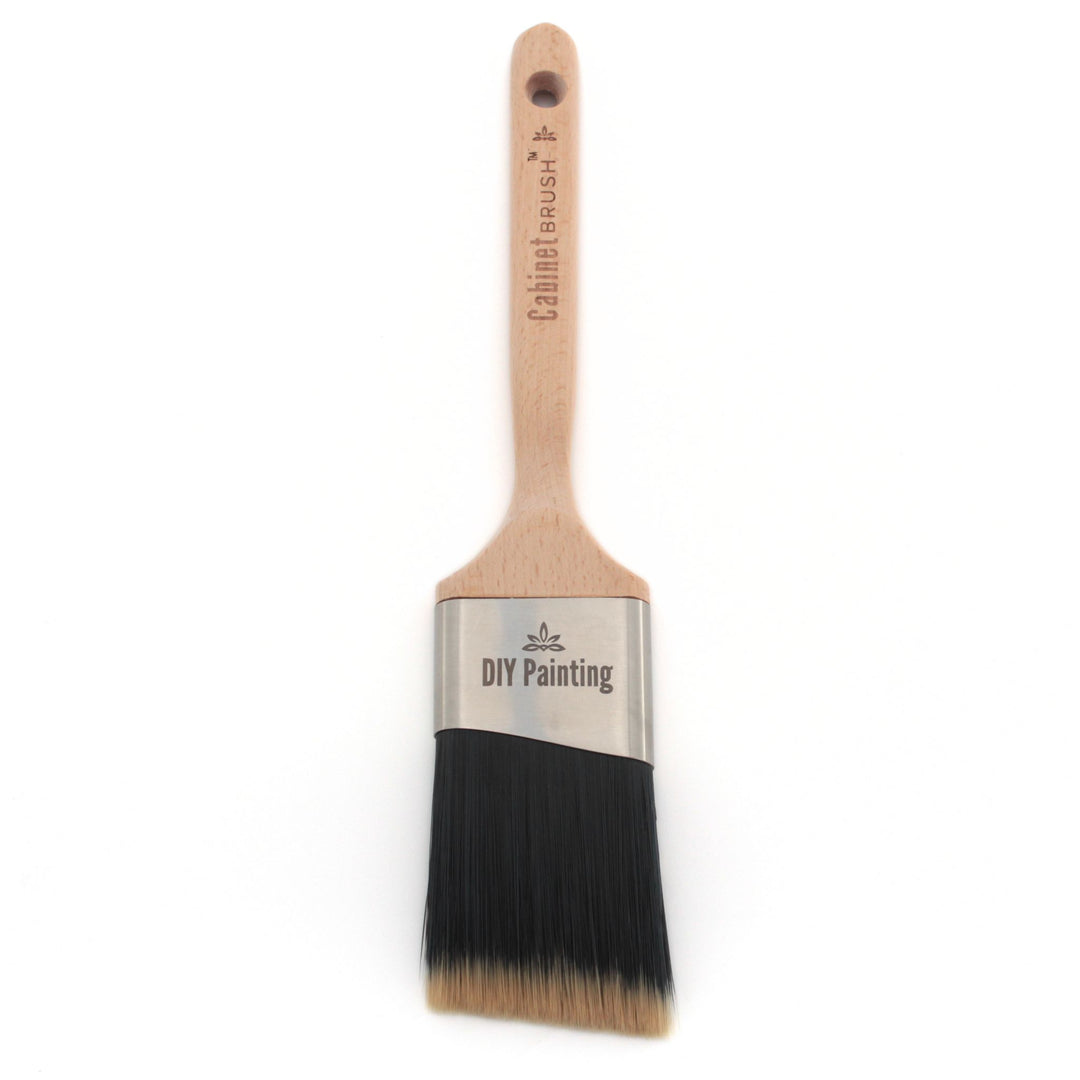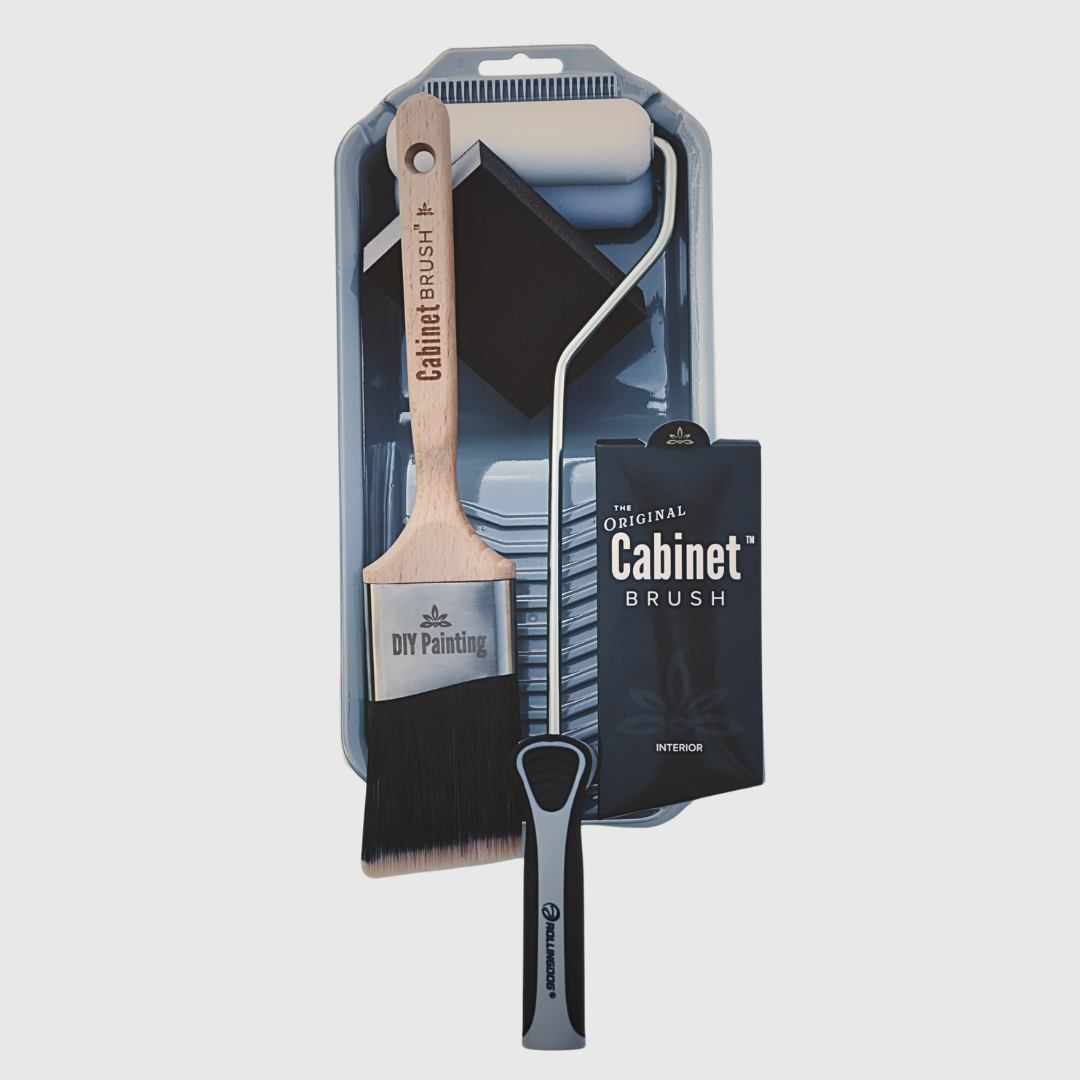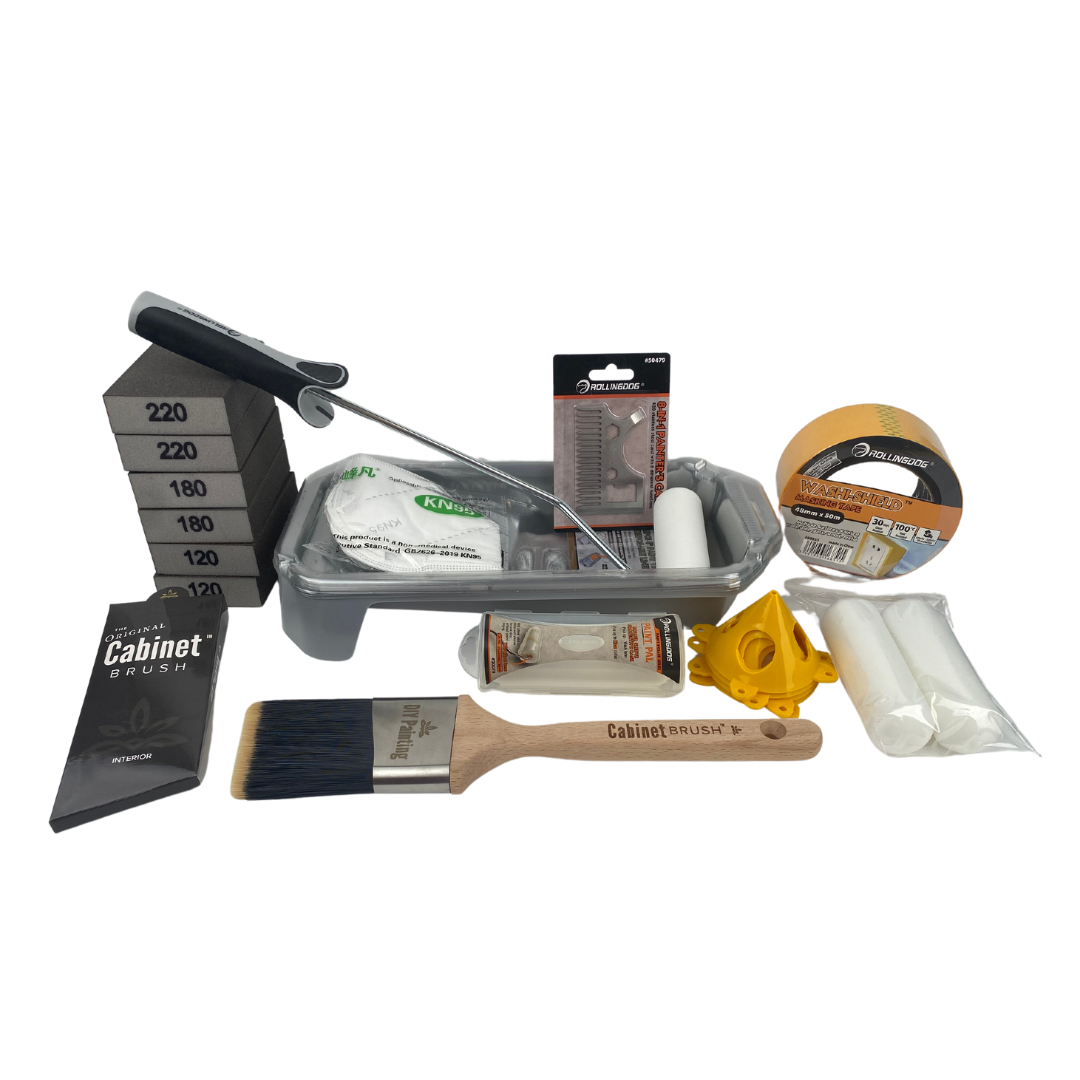Kitchen Cabinet Guide Part 3: All About Sheen
Let's chat about the perfect paint sheen for your kitchen cabinets.
Sheen is the degree of shine that the paint exhibits once it dries. Different levels of sheen can affect both the appearance and performance (think: cleanability!) of the paint.
With options ranging from Flat to Gloss, it can get a bit overwhelming. Let's take a quick look at each of them...
Quick note from Ryan: After painting hundreds of kitchens, I’ve found the right sheen is the difference between a pro, factory-grade look and a finish that shows every fingerprint or grain line. Below is exactly how I choose sheen for real client jobs—and how you can get the same result at home.
Flat is often overlooked for cabinets because it doesn't handle moisture or cleaning well, which is crucial in a kitchen.
Eggshell, a bit shinier, offers slightly better durability but still might not stand up to the daily wear and tear in a kitchen.
Satin is my absolute favorite for cabinets! It's the hands-down WINNER🏆 and here's why:
Satin hits the sweet spot with a soft sheen that's not too shiny but offers excellent durability and is easier to clean, making it perfect for the kitchen's hustle and bustle.

Want the “factory finish” look? In my Paint Like a Pro Plan, I show how I choose sheen, set up spray passes, and avoid streaks/orange peel.
Watch Free TrainingHere's a good picture showing Satin's perfect in-between properties:

Pro Result on Oak: If your doors are oak (heavy grain), fill the grain first so Satin actually looks smooth. I use Cabinet Mud to knock down the pores and get that “glass” look.

Cabinet Mud – Grain Filler
My go-to for smoothing oak before primer so Satin or Semi-Gloss looks truly professional.
Shop Cabinet MudWhen the paint is still wet, it's going to look glossy like in this picture, but don't worry, it will mellow out when it dries!

Wrapping up our list...
Semi-Gloss is probably the second most common sheen used on kitchen cabinets. Semi-gloss offers higher durability and moisture resistance, but it can sometimes be too shiny, highlighting imperfections on your cabinets.
Gloss is the shiniest of them all, which can give a dramatic look, but in my opinion, it's too reflective and shows every fingerprint and smudge, making it less than ideal for a busy kitchen.
In conclusion, I highly recommend Satin sheen for its balanced aesthetics and functionality, perfect for giving your kitchen cabinets a beautiful and lasting finish.
Tools & Prep I Use for a Factory Finish
- Cabinet Prep – Clean/degloss so the primer and topcoat bond right.
- Cabinet Mud – Fill oak grain for a smooth, pro look under Satin.
- DIY Cabinet Painting Course – My full start-to-finish process, including sheen selection and spray settings.

Cabinet Prep – Cleaner/Deglosser
Step one for adhesion and a durable finish—especially important with Satin and Semi-Gloss.
Pro Tips for Sheen Success
- Prep is 80% of the finish: clean/degloss, sand, and dust control before you ever open paint.
- On oak: fill grain (Cabinet Mud) before primer so Satin doesn’t telegraph pores.
- Test a door first: sheen looks different under your lighting; Satin is usually safest.
- Spraying? Practice on the backside of a door to lock in fan width, distance, and overlap.

See my exact cabinet process, step by step.
From prep to grain fill to sheen choice and spraying, it’s all inside the DIY Cabinet Painting Course.
Start Free Lesson

